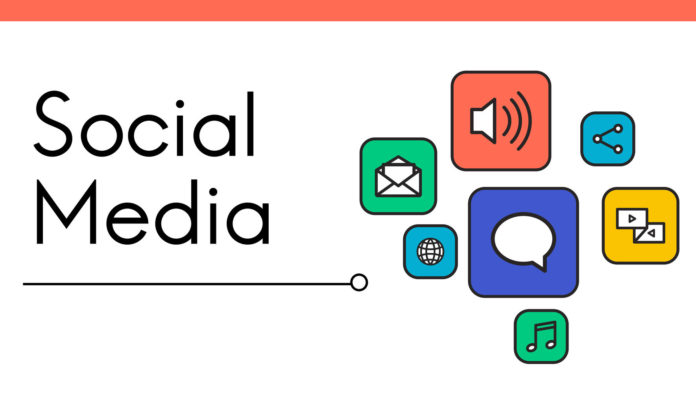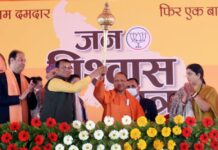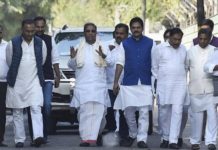Stop any old American on the street and ask them what they think about politics, and you probably aren’t going to get a positive answer. In fact, more than likely, you’ll get a response that reflects the general sentiment that American politics are totally out of touch with the average American.
After all, the big message that made its waves through the media after the 2016 Presidential Election was that clearly, Americans felt that their voice wasn’t being heard. Whether that was evidenced by the 40% of Americans that didn’t vote at all, or rural America overwhelmingly voting to support the least politician-like candidate of the bunch, Donald Trump, the message came through.
But along with the phenomenon of Americans standing up to their politicians to tell them they’ve had enough, another trend is taking place under our noses. The digital technologies of today are giving people a better platform to begin organizing politically with each other from local to broader movements, they are better able to organize to show up to town halls and contact their legislators, and their voices are being heard, in many regards, more than ever.
It could be that the power of the internet is what will help heal the biggest illness of American politics – a severe lack of grassroots democracy.
- Organizing Platforms
There is a lot of talks out there about how the internet is changing politics, and most of it isn’t good. Whether it’s getting stuck in social media echo chambers that continue to divide us, being constantly exposed to non-reputable news sources or our tendency to argue in the Facebook comments, internet and politics seem, to most, to be a bad mix.
But as much as these factors may be a problem, that narrative around politics in the modern age misses some of the incredible tools that the internet can offer us in terms of politically organizing and getting involved with our democracy.
To name just a few, platforms such as Evernote, Google Drive, nd Slack are revolutionizing the way that people can develop and implement projects together. These organizing tools allow entire teams to view and edit documents together, create communication channels together, share files or links and organize information. It allows a very small group of people, no matter how geographically divided, work on a shared project or campaign together on their own time – whether that’s 6 in the morning before work or 11 PM at night.
Even more, there are organizing platforms that are specifically built for organizing a political campaign. Take NationBuilder for example – their designers created a platform that combines four central elements of running a campaign: organizing people, communicating with voters and volunteers, building a website and fundraising. It was the world’s first online platform for managing campaigns, and it’s widely used for electoral and advocacy efforts all over the world.
With unprecedented new tools making building a campaign, organizing people, raising money and working with other volunteers on a shared goal easier than ever, people are more empowered to lead and participate in democracy.
2. Social Media
Not every group of activists is using a collaboration platform to get involved – many people aren’t going any further than their social media profiles. Facebook, Twitter, Reddit and other popular social media outlets are having real impacts on the kind of on-the-ground organizing we see in our local communities. And with each platform comes a unique impact on our political playing field.
On Facebook, people are using applications like Groups, Events, Pages and more to organize a base of like-minded people and form organic networks of activists in their communities. It’s so easy to gather a growing network of passionate civically engaged friends and keep them in the loop of various events and efforts in the area. It’s easy to underestimate the organic power that platforms like Facebook can have in terms of building networks of people that will have real, tangible, widespread and long-lasting impacts on their communities. When people begin to connect, share ideals and goals on a community level, efforts take place, conversations take place, and that’s fundamentally what politics is – the face-to-face conversations we have about the world around us.
People are using Twitter to share memes – but when I say memes I’m not talking about cat pictures. Well, okay, they’re sharing those too. But they’re also sharing the classic definition of a meme – a unit of thought, an idea, a spreadable concept. Those memes often come in the form of hashtags: #BlackLivesMatter #FeelTheBern #TeaParty #RedNationRising. But those hashtags don’t just stay on peoples’ Twitter accounts – they end up spreading and becoming rallying points for new organizations, events and campaigns.
Eventually, they’re repeated by our politicians who can’t help but listen to us if they hope to be re-elected.
And that’s where going viral comes in…
3. The “Going Viral” Phenomenon
The “going viral” phenomenon has had a huge impact on the world in general – from creating instant fame to helping businesses launch and so much more. When it comes to politics, going viral changes everything. It can cause the death of a political career, huge new advocacy efforts, and ultimately new laws being introduced and passed in our congress and state houses.
Let’s take, just for example, what happened when Michael Brown was shot by police in Ferguson, Missouri. It wasn’t the first time that an unarmed black American had been shot by police – not by a long shot. This was an issue that had been plaguing African-American communities since, well, really since the modern American police force was put into place.
But when it happened in 2014, the story went viral. The video was on every Facebook news feed in the country. Everyone, within just a few days, knew who Michael Brown was, they knew the story, and it sparked a nationwide conversation. Some people believed the shooting was justified, but for others, it was evidence of the corruption of law enforcement and brutality of police.
What happened next can’t be missed. #BlackLivesMatter went viral, and it turned into a movement, a series of protests, and a serious political issue that elected representatives had to start taking seriously. When things go “viral”, it’s a democratic statement – people organically decided it was something they wanted to pay attention to. This isn’t a top-down phenomenon, by nature it’s bottom up.
We’re in the middle of a huge transition that is shifting American politics before our eyes. It can be hard to recognize exactly what the impact of social media and the internet is having on the political world while you’re in the midst of the changes. But observing how social media, digital organizing platforms and online behavior has affected politics over the past few years can give us a glimpse of the long-term effects they will have.
By and large, the bottom-up nature of the internet/social media and the accessibility of organizing tools look like they’re having the effect of amplifying the voice of the people and empowering the people to organize and make changes in their communities and government bodies.




